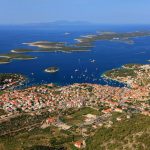August the 17th, 2019 – We’ve tackled the ins and outs of legal residence, citizenship through descent, marriage, naturalisation and special interest, and now we’re venturing into the world of work permits in Croatia.
In this article, we’ll explore who issues permits, the procedures, what work permits both inside and outside of the annual quotas mean, and who needs a work permit to carry out economic activities in Croatia.
UPDATE: The Croatian Government has opted to abolish quotas for third country nationals. To find out what that means for you, click here.
First things first: Who doesn’t need a work permit to work legally in Croatia?
1.) Citizens of any country (regardless of whether or not their country of citizenship is an EU member state) who hold permanent residence in Croatia can work in any sense, without any need for a permit, and without any restrictions.
2.) Nationals of the European Union (nationals of the EU’s member states, including nationals of Switzerland, Norway, Iceland and Liechtenstein) can work in Croatia freely, without any need for any type of work permit, and are treated in the same way as Croatian nationals.
If they intend to live in Croatia (stay for more than three months), then they will still need to apply for a residence permit. This permit will not be a stay and work permit, because EU nationals who are not Austrian nationals, do not need any type of work permit to work in Croatia.
Why have I mentioned Austrian nationals, you ask?
The only nationals of the EU who continue to need work permits to be able to legally work in Croatia are Austrian nationals.
Why?
Transitional restrictions on the access of workers from Croatia to the labour markets of other EU member states currently still apply in Austria. They previously applied in Malta, the Netherlands, Slovenia and the United Kingdom, but those countries have since dropped all restrictions for Croatian nationals, and Croatia has therefore done the same for Maltese, Dutch, Slovenian and British citizens.
This law means that Austria regulates the access of Croatian workers to its labour market by national law and not EU law, and as such may require work permits from Croatian workers.
Croatia has equivalent transitional restrictions for workers from Austria. This will continue until Austria removes any barrier to the Austrian labour market for Croatian citizens.
What about third country nationals? (Citizens of countries from outside of the European Economic Area)
All citizens of third countries (non EEA nationals) who do not hold permanent residence in Croatia must apply for a work permit should they be offered employment in Croatia.
Work permits are regulated by an annual quota, and there are a certain number of permits issued for each type of ”activity” (economic) in Croatia each year. Recently, the quota has been increased to allow for third country nationals to fill the work positions Croats and EU nationals are not doing, primarily owing to the current demographic crisis in Croatia.
How does a third country national or an Austrian citizen apply for a work permit in Croatia?
In order to get a work permit, you’ll need to either apply from within Croatia if you’re already here, or at a diplomatic mission in your own country. Should you need to extend the work permit you’ve been granted when here in Croatia, you may do so in person at your local administrative police station.
Please note that the law states you must do this 60 days before your work permit is due to expire. There are exceptions of course, and discretion is commonly used by MUP, but it’s best to stick to this rule to avoid needless complications and possible extra paperwork, not to mention a fine.
What does a third country national need to present when applying for a work permit for Croatia?
1.) You’ll need to present an official (government issued) ID, such as a biometric ID card or a passport, and a copy of the information page
2.) An employment contract (it’s wise to make a couple of copies), or other appropriate proof of having concluded (signed) a work contract
3.) If you’re not technically being employed by a third party, and you intend to carry out your work in Croatia as a self employed person, you’ll need to provide proof of you having registered your company, craft (obrt), etc, in Croatia. (Extracts from the relevant registers should not be more than six months of age)
4.) A completed application for the work permit (this can be picked up at the administrative police station when you apply, or at the competent diplomatic mission outside of Croatia)
5.) Your OIB (personal identification number used for tax purposes)
6.) If you’ve registered your address in Croatia, you’ll need to provide proof of you having done so (either via a registration certificate, proof of you having submitted that particular document, or your Croatian ID card if you already have it)
7.) A photo of you (done in passport style but not necessarily passport size, MUP will tell you more)
8.) Proof of having paid the applicable fees for the application (Form 9a)
You may be asked for proof of your education and qualifications, proof of sufficient funds, and other documents depending on your individual situation.
You’ll notice that unlike when third country nationals apply for residence in Croatia, you may not need to provide proof of having health insurance when applying for a work/stay and work permit if you are being hired by a Croatian employer/company, as this will be paid by them.
In some cases, however, third country nationals continue to be asked for this, and it is prescribed by law even though this often isn’t asked about.
Croatia is part of the EU Blue Card Scheme, which often proves useful for third country nationals in Croatia. If you’re highly skilled and are offered an EU Blue Card, this can entitle you to two years of being able to work in Croatia. Other work/stay and work permits typically only allow for twelve months at a time and in some cases can prove problematic to extend.
For certain jobs, you don’t need a work permit, but a work registration certificate, and your employer can get this for you from the police. If you’re unsure of whether or not this applies to you, ask MUP and your employer.
Does the third country national’s Croatian employer need to be involved at all in this process?
Yes.
The work/stay and work permit procedure can either be done by you, or by your employer who has their company seat in Croatia. You’ll both be required to provide supporting documents as and when asked for them. You may also be asked to provide official translations for any documents you provide which are not already in Croatian.
What does being inside or outside of the annual quota mean?
If you’re confused about Croatia’s annual quotas and just what they mean, MUP explains in detail what each of them is and who falls under which category.
For details on the issuance of stay and work permits outside of the annual quota, click here.
For details on the issuance of stay and work permits inside the annual quota, click here.
Brexit is looming, what do you do if you’re a British national wanting to work/already living and working in Croatia?
If you’re a British national who is already living in Croatia with regulated residence (a residence permit), then you can continue to carry out whatever economic activities you are currently doing without the need for any special permissions or work registration.
Croatia has vowed to protect the rights of all British nationals who are legally living and/or working in Croatia, regardless of the outcome of the Brexit negotiations (deal or no deal), and who hold a valid residence permit before the UK leaves the EU.
No Deal Brexit: British nationals who are legally resident before Brexit in the case of a no deal Brexit can continue to work, be self employed or be hired just as they did before. British nationals who arrive after a no deal Brexit will be subject to the national rules on third country nationals.
Brexit with a deal: British nationals who are legally resident and continue to be at the end of December 2020, can continue to work, be self employed or be hired just as they did before. British nationals who arrive after the end of the transition (implementation) period will be subject to the national rules on third country nationals.
For much more detailed information on that, make sure you register your residence now, and click here.
For more information on working and living in Croatia, make sure to follow our dedicated lifestyle page.








